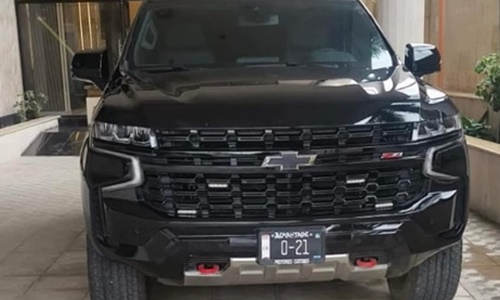Liberia, once a beacon of hope for many, now finds itself ranking as the eighth poorest nation globally, according to the International Monetary Fund (IMF), with a per capita GDP of merely $1,882. The country also stands as the ninth poorest in Africa and sixth in West Africa, highlighting a persistent struggle against poverty. In stark contrast to these grim economic statistics is the ostentatious lifestyle of some of the country’s leaders. A recent incident involving Liberia’s Commerce Minister, Amin Modad, who allegedly purchased a luxury vehicle priced at $150,000, has drawn significant attention. Critics note that such a luxury purchase is inappropriate given the country’s deteriorating infrastructure. Although Modad claims the actual cost was $98,000, the broader implications of such spending habits reflect a culture among officials that prioritizes personal luxury over national development.
The narrative of extravagant spending is not confined to the current administration. Past leaders have also faced scrutiny for their luxurious tastes. An example is provided by Eugene Nagbe, the former maritime commissioner, who was accused of personally outfitting a high-cost vehicle using public funds. While he later claimed that the vehicle had been returned to the Maritime Commission and was not customized as alleged, the incident sheds light on a systemic issue within Liberia’s governmental structures, where the appetite for luxury often overshadows a commitment to public service. Such behavior from government officials can engender a pervasive culture of entitlement, further fueling the nation’s rampant corruption.
Corruption within the government remains a pervasive obstacle to Liberia’s growth, fostering an environment where officials indulge in luxury vehicles and lavish homes that starkly contrast with their official salaries. This systemic issue is particularly evident among lawmakers, who receive $45,000 every three years for vehicle purchases, while the basic needs of their constituents—such as reliable healthcare, education, clean water, and sanitation—largely go unaddressed. In many communities, essential services are severely lacking, exacerbated by inadequate access to electricity, which, while improving, remains elusive for much of the poor population. Moreover, the troubling practice of officials evading payment for utilities heightens the nation’s fiscal woes, leading to debts with neighboring countries like Ivory Coast for electricity supply.
At the same time, the overwhelming poverty in Liberia poses a significant barrier to the country’s development. Reports indicate that gender and income disparities are crucial issues, with as many as 57 percent of school-aged children remaining outside of the educational system. Coupled with rising commodity costs introduced by global events like the invasion of Ukraine, the economic climate becomes ever more precarious. Historical mismanagement, stemming from decades of civil unrest, also plays a pivotal role. Between 1989 and 1995, the country experienced a catastrophic decline in GDP by 90%, a ruinous trend that has left lasting scars on economic structures and opportunities for growth.
Despite the troubling conditions, there have been slight improvements in economic indicators, such as a marginal decline in poverty rates from 35.4% to 34.2% between 2022 and 2023, alongside a forecast of increased GDP growth. The African Development Bank projects growth rates of 5.2% for 2024 and 6.2% for 2025, driven largely by advancements in services, agriculture, and mining. Such statistics, however, do little to mask ongoing corruption and mismanagement within the government. For instance, shortly after the approval of the 2024 National Budget, allegations surfaced that an additional $20 million had been inexplicably introduced into it, although investigations failed to yield clarity on where this money went.
In a landscape characterized by fiscal irresponsibility, the government has also spent millions outside of budgeted items without compensating local vendors, causing distress among small businesses and media outlets struggling to survive. While claims are made that the local debts have been forwarded to the General Auditing Commission for review, this remains an abstract solution for vendors not receiving payments. The striking disconnect between officials indulging in luxury and the everyday realities of poverty-stricken citizens serves to highlight the pressing need for structural reforms. Unless Liberia’s leadership prioritizes accountability, transparency, and genuine public service over personal indulgence, the nation may find itself trapped in an endless cycle of poverty and mismanagement.














